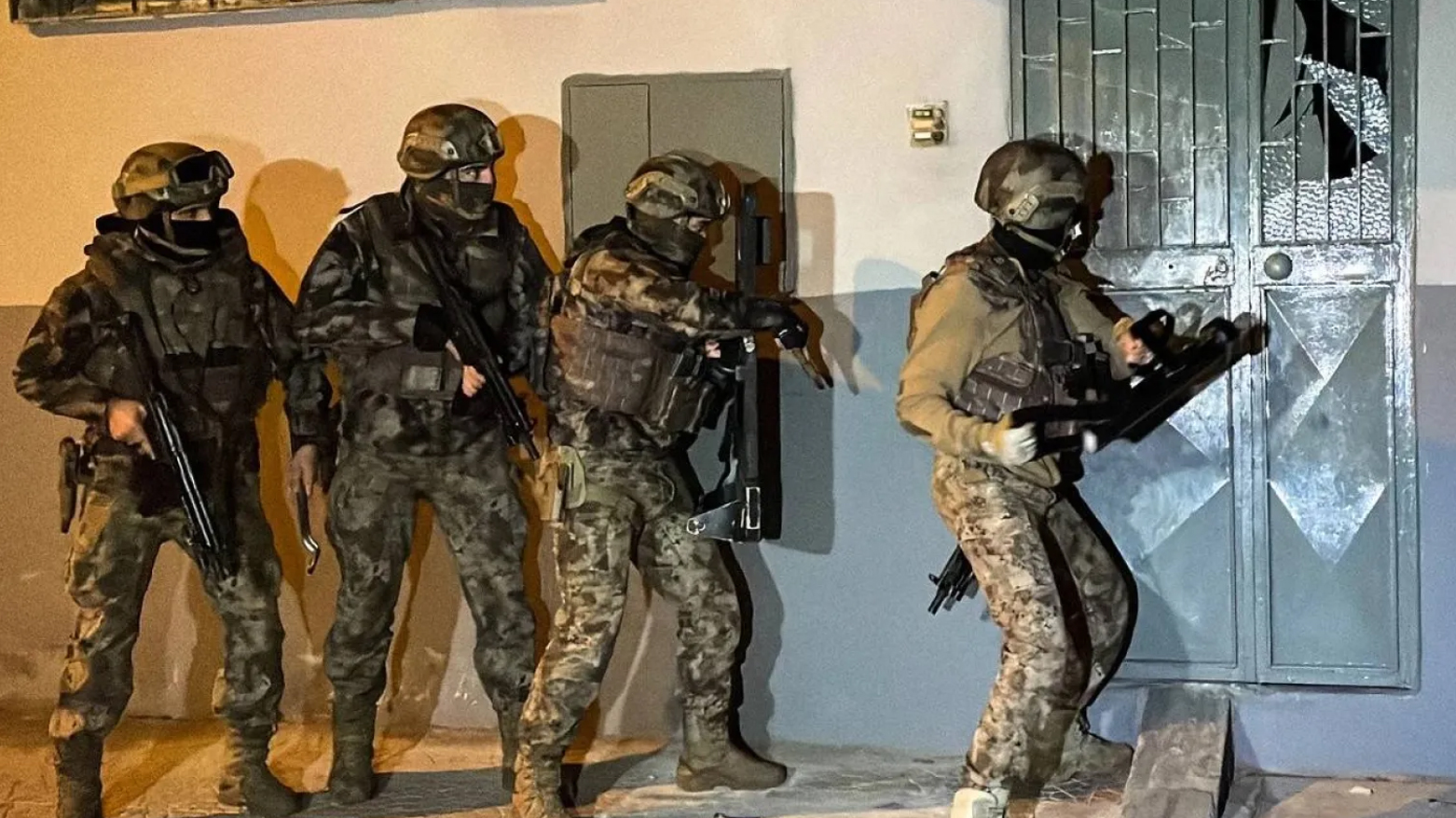Turkey Arrests 298 ISIS Suspects in Sweeping Nationwide Operation
Yerlikaya emphasized the government’s unyielding resolve to continue operations "without hesitation," pledging to safeguard the nation's security and stability.

By Ahora Qadi
ERBIL (Kurdistan24) – Turkish counter-terrorism forces have launched a major nationwide security campaign targeting remnants of the so-called Islamic State (ISIS), arresting 298 individuals across 47 provinces, the country’s interior minister announced Thursday.
In a statement on X, Turkish Interior Minister Ali Yerlikaya confirmed that a broad coordination effort between public prosecutors, the intelligence agency (MIT), the counter-terrorism directorate, and gendarmerie command resulted in the sweeping operation. Of those detained, 159 suspects were found to be directly involved in ISIS activities and financial support networks.
Another 139 individuals, Yerlikaya added, were apprehended for promoting ISIS ideology and providing material assistance to the group. The nationwide crackdown led to the seizure of unlicensed weapons, digital materials, and organizational documents, further underscoring the depth of the group’s covert operations within Turkish borders.
“DEAŞ Terör Örgütü Mensubu 298 Şüpheliyi Yakaladık.”
— Ali Yerlikaya (@AliYerlikaya) May 21, 2025
47 ilde DEAŞ Terör Örgütüne yönelik Emniyetimiz ve Jandarmamız tarafından 2 haftadır düzenlediğimiz operasyonlarda; 298 şüpheli Terör Örgütü mensubu yakalandı❗
❌EMNİYET:
Cumhuriyet Başsavcılıkları ile MİT Başkanlığı,… pic.twitter.com/15cFFqD9MI
Sustained Campaign Against ISIS Infrastructure
Yerlikaya emphasized the government’s unyielding resolve to continue operations "without hesitation," pledging to safeguard the nation's security and stability. "The greatest strength of Turkey lies in the solidarity and unity of its people against terrorism," he stated.
In recent months, Turkey has escalated its efforts to dismantle ISIS's logistical and propaganda networks. These operations have focused on apprehending financial coordinators, arms suppliers, and recruitment officers embedded within the country.
According to Turkish security sources, hundreds of ISIS operatives have been arrested over the past two months—many of whom previously operated in Iraq and Syria. These individuals are suspected of relocating to Turkey to continue their activities under the radar, leveraging the country’s strategic location as a logistical corridor.
Historical Context and Regional Coordination
ISIS was officially designated a terrorist organization by Turkey in 2013. Between 2015 and early 2017, the group claimed or was linked to a string of deadly attacks across the country, resulting in the deaths of many civilians and injuring many more.
One of the most infamous attacks occurred on New Year's Eve in 2017, when Uzbek ISIS militant Abdulkadir Masharipov, also known as Abu Muhammad al-Khorasani, killed 39 people in the Reina nightclub in Istanbul. That event prompted Turkish authorities to intensify their efforts against the extremist group, leading to thousands of arrests, hundreds of deportations, and the denial of entry to thousands more.
Turkey’s recent security campaigns are now reinforced by regional coordination. On March 9, 2025, senior officials from Turkey, Jordan, Iraq, Syria, and Lebanon convened in Amman to discuss joint measures against terrorist threats, with ISIS high on the agenda. Further trilateral discussions between Turkey, Jordan, and Syria took place in Ankara this week, with foreign ministers Hakan Fidan, Ayman Safadi, and Assad al-Shibani respectively, focusing on enhanced counter-terrorism cooperation.
Preventing a Resurgence
Despite its territorial defeat in Syria six years ago, ISIS continues to pose a significant regional and global security threat. Analysts warn that persistent ideological roots, a fragmented Syrian landscape, and growing economic instability may provide fertile ground for resurgence.
Turkey’s expansive security operation sends a clear signal that Ankara is determined to neutralize these threats preemptively. However, the long-term efficacy of such efforts will likely depend on sustained regional coordination, socioeconomic resilience, and deradicalization strategies aimed at dismantling the group’s ideological appeal.